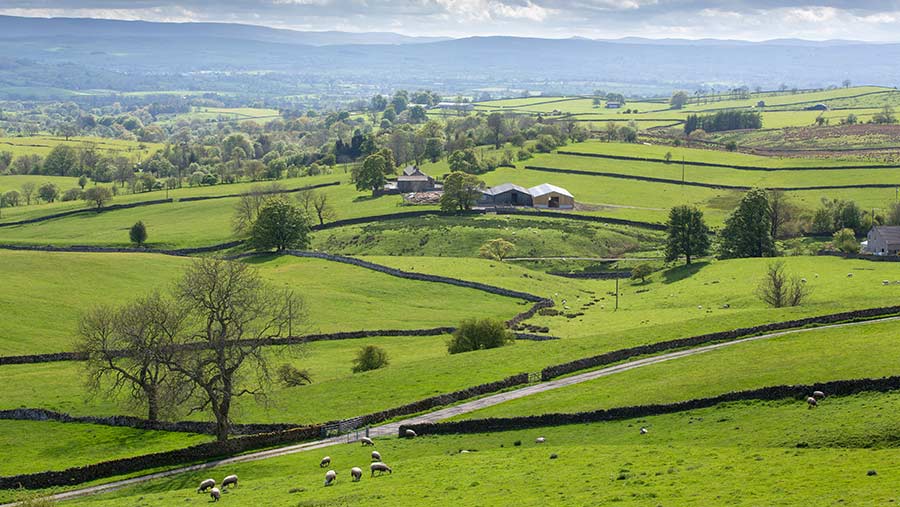CAAV land survey points to growth of short-term FBTs
 © Tim Scrivener
© Tim Scrivener Farm business tenancies are being offered for slightly longer than in the past suggesting a bit more security for tenants acquiring land on this basis.
This is according to the Central Association of Agricultural Valuers (CAAV), which presented details of its Land Occupation Survey at its annual conference in Oxford last week.
The CAAV revealed that the overall average length of farm business tenancies (FBT) tenure in 2022 was 3.66 years, compared with 3.03 years in 2021.
See also: Upland landlords need incentive to offer longer tenancies
And when considering tenancies of over a year in length (in other words, removing grass lets from the data), the average FBT in 2022 was for 5.46 years, compared with 4.67 years in 2021.
The survey also revealed that much of the market for agricultural lettings was for bare land, with only 7.6% of lettings including a house and farm buildings with the land.
About two-thirds of Agricultural Holdings Act 1986 agreements that came to an end were re-let as FBTs in 2022, which is a marginally lower percentage than previous years.
CAAV secretary and adviser Jeremy Moody said new lettings were essential to give access to proficient farmers, so they can have access to land without carrying its capital cost.
The CAAV found that most land that is on tenancy is re-let to the same farmer, but in instances where land is re-let to someone else, 37% of these lettings were to new entrants.
“If you increase the number of opportunities and increase the number of new lettings, more people will come in (to the industry),” Mr Moody said.
He also explained that tenancies being agreed now for September 2023 will be “delinked” tenancies.
With Defra set to break the link between the Basic Payment Scheme and land ownership in England next year, these tenancies will be on the value of the enterprise rather than subsidies tied to the land.
Carrot and stick – will one replace the other?
Government support schemes for agriculture and the environment are currently incentivised through funding and grants.
However, there is some speculation that future legislation may be introduced which will make some environmental practices mandatory requirements later in the decade, Mr Moody suggested.
An example of this could be Defra’s Slurry Infrastructure Grant, which provides funding towards the costs of building six months’ worth of slurry storage facilities on farms.
Some in industry believe that future policy could make this a legal requirement, based on current policy work on the topic.
The CAAV advises farmers to take advantage of schemes such as these now, while funding is available.
